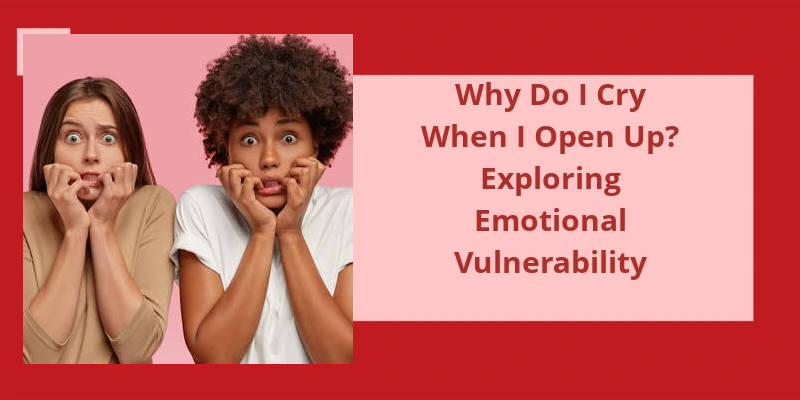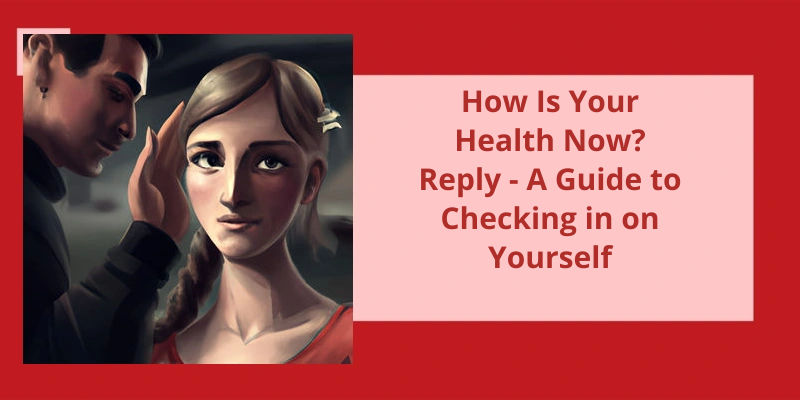Vulnerability is a complex and nuanced aspect of human existence that often elicits powerful emotions and responses. One such response is crying, a deeply personal and intimate expression of our innermost feelings. The act of crying goes beyond the physical release of tears; it’s an emotional openness, a raw unveiling of our internal landscape. When we open up and allow ourselves to cry, we’re essentially exposing our true selves, our fears, insecurities, and vulnerabilities. It’s in this vulnerability that we confront the deep-rooted and universal human need for connection and understanding. But why is it that we cry when we open up? Exploring the intricate relationship between crying and vulnerability unveils the complexities of our emotional experiences and sheds light on the profound impact of sharing our authentic selves.
Why Do I Cry When I Speak Up for Myself?
Why do I cry when I speak up for myself? One reason you may be crying is because you feel overwhelmed by anxiety. You might be anticipating and dreading that it’s going to happen. It’s hard to get away from that, even if you want to stand up for yourself—but battling against it might be making it worse.
The tears that come when we open up can be a reflection of the vulnerability we feel in that moment. Speaking up for ourselves requires courage, and it means allowing ourselves to be seen and heard. It’s natural for our emotions to come to the surface when we expose our innermost thoughts and feelings to others.
Moreover, crying can be a physical response to the release of pent-up emotions. When we finally find the strength to voice our opinions, assert our boundaries, or express our needs, it can be a relief. The floodgates open, and tears flow as a way for our bodies to release the emotional tension we’ve been holding onto.
In addition, crying can also be a result of past traumas or experiences. Perhaps you’ve been invalidated, dismissed, or rejected in the past when you expressed yourself. These past wounds might resurface when you try to open up, causing the tears to flow. It’s important to recognize and understand these triggers, as they can help you navigate and process your emotions more effectively.
Lastly, crying can be a sign of strength, not weakness. It takes a certain level of emotional intelligence and self-awareness to recognize and embrace our vulnerability. By allowing ourselves to cry when we open up, we’re showing ourselves compassion and acknowledging the significance of our emotions. It’s a powerful and authentic expression of who we are. So, instead of suppressing your tears, allow them to flow and honor the depth of your feelings.
By exploring and understanding these underlying factors, you can approach your emotional vulnerability with compassion and self-acceptance. Remember, your tears are a testament to your courage and authenticity.
How to Cope With Crying When Speaking Up for Oneself
- Take deep breaths and try to stay calm.
- Remind yourself that crying is a natural response and doesn’t diminish your value or credibility.
- Pause and collect your thoughts before responding.
- Focus on the issue at hand and the purpose of the discussion.
- Use assertive and clear language to express your thoughts and feelings.
- Practice self-care techniques to manage emotions, such as mindfulness or positive self-talk.
- Seek support from trusted friends or a therapist to process and overcome any underlying emotional triggers.
- Remember that speaking up for oneself takes courage, and it’s okay to feel vulnerable at times.
- Learn from each experience to build resilience and develop better communication skills.
Sometimes, even when we try to hold back our tears, it becomes difficult to conceal our emotions. It’s natural to feel self-conscious in such moments, but there are simple techniques that can help you regain control. By adjusting your body posture, directing your gaze, and concentrating on your breathing, you can find ways to cope with the overwhelming emotions that often accompany opening up.
How Do I Stop Crying When I Open Up?
When it comes to emotional vulnerability and opening up, it isn’t uncommon for tears to flow freely. However, some individuals may find themselves feeling self-conscious about this natural emotional response. If you’re seeking ways to stop crying when you open up, it’s important to remember that everyones emotional journey is unique and personal.
To manage the tears and avoid feeling self-conscious, there are a few techniques you can try. First, try tilting your chin up slightly while opening your eyes wider than usual. By doing this, you’re allowing the tears to flow downward rather than pooling in your lower eyelids, which can make the crying more noticeable.
Another useful technique is to avoid blinking for a moment, as blinking can trigger additional tears and prolong the crying.
Additionally, tightening your facial muscles can help reduce the prominence of tears. By tensing your facial muscles subtly, you may be able to suppress the physical signs of crying, thus creating a more composed appearance.
Consistent deep breathing can also be helpful in managing your emotional state. By consciously focusing on taking slow, deep breaths, you can help regulate your emotions and calm yourself down. This can potentially alleviate the overwhelming sensations that often lead to tears.
Remember, vulnerability isn’t a weakness. It’s a strength that allows for profound connections and personal growth. While it can be challenging to control our emotional responses, finding techniques that work for you can help make the process of opening up more comfortable and empowering.
Understanding the Benefits of Emotional Vulnerability and Opening Up
Emotional vulnerability and the act of opening up can be deeply cathartic and empowering. By allowing ourselves to be vulnerable with others, we create an opportunity for genuine connection and understanding. Sharing our emotions and feelings can lead to greater self-awareness, personal growth, and stronger relationships.
When we open up, we give ourselves permission to be seen and heard, allowing others to support us in our struggles and celebrate our joys. It can be scary to expose our innermost thoughts and emotions, but doing so can ultimately lead to a sense of liberation and relief.
Furthermore, emotional vulnerability encourages empathy and compassion in others. By sharing our vulnerabilities, we give permission for others to do the same, fostering an environment of honesty and trust. This fosters deeper connections and promotes a sense of belonging.
In conclusion, embracing emotional vulnerability and opening up can have numerous benefits, including increased self-awareness, personal growth, stronger relationships, and a more empathetic and compassionate community.
Recent research suggests that highly sensitive people may indeed find themselves shedding more tears than others. Their heightened empathetic abilities enable them to comprehend the emotions of those around them with greater accuracy. However, this emotional sensitivity can also result in more intense and frequent emotional responses. Consequently, highly sensitive individuals may find themselves weeping more regularly and experiencing a profound impact from both their own emotions and those of others.
Do Highly Sensitive People Cry More?
Do highly sensitive people cry more? This is a question that’s intrigued researchers and psychologists alike. It’s often believed that highly sensitive individuals possess a unique ability to understand the feelings of others, which can sometimes lead to a higher emotional reactivity. In other words, they’re more likely to have a genuine emotional response when confronted with intense emotions.
The ability to deeply process emotions can often bring them to the surface, resulting in tears. They may find themselves overwhelmed by their own emotions and those of others, leading to a release of tears as a way to cope and process the emotions.
They’ve a keen sense of picking up on the emotions of others and can easily become overwhelmed by them.
It’s important to note that crying is a normal and healthy way to express emotions. While some may view this as a weakness, it’s actually a strength. Being able to openly express and process emotions can lead to greater emotional well-being and resilience.
However, it’s important to view this as a strength rather than a weakness, as it allows for a greater depth of emotional expression and ultimately contributes to their overall emotional well-being.
Conclusion
This act of emotional vulnerability is a testament to our humanity, as it takes courage to confront our insecurities and uncertainties. Crying allows us to release pent-up emotions, fostering a sense of catharsis and leading to personal growth and healing. It’s through this raw and sincere expression of emotion that we can truly connect with others, forging deep and meaningful connections. It’s because vulnerability and tears go hand in hand, as both involve the act of revealing our innermost selves, creating a vulnerable space for empathy, understanding, and ultimately, personal transformation.






